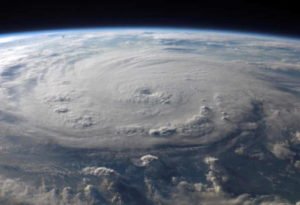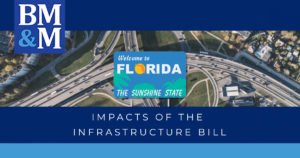
This week we keep with last week’s vehicular theme 1, although on a somewhat different topic. Yes, the ongoing Coronavirus/COVID-19 pandemic will be involved in the discussion, but as backstory.
You schedule an event. You set a time for it to begin. You make your preparations accordingly. And then…an unwanted guest arrives early.
Such is the case now. The typical Atlantic tropical storm/hurricane season runs from June 1 through November 30. 2 This year, however, it appears the first tropical storm which shows a prospect of developing 3 into a ‘named windstorm’ 4 has already shown its ‘face’.
During the midst of the still-developing pandemic. 5 Double fun.
However, there is no time to wallow in worry. It is time for Florida’s individuals, families, and businesses to ready themselves in advance. 6 Now. An excellent proactive risk management move.
As identified in the “Opening Note” below in the footnotes section, many preparedness topics have already been attended to in prior articles. (See all the footnotes below…) So let us, instead, do a compact review of timely topics. Please pardon that those reviews take the form of lists; there is no good reason not to be brief and efficient (pardon, as well, for the double negative).
Predictive resources (at no-charge, of course)
- Scientific sourcing – Colorado State University, Department of Atmospheric Science, Tropical Meteorology Project: CSU Tropical Weather and Climate Research 7 And the National Oceanic and Atmospheric Administration [National Oceanic and Atmospheric Administration] – National Hurricane Center.
- Federal government – U.S. Department of Homeland Security.
- Florida government – Department of Environmental Protection .
- Florida Division of Emergency Management: Preparing for the 2020 Hurricane Season.
- Florida Association of Counties.
- And many commercial sources, as well: weather.com and Local Weather Forecast, News and Conditions | Weather Underground.
Individuals and families
- Walk around homes, property, and apartments to identify (and repair) areas which could cause roof/ceiling/ basement leaks, window breaks, trees which could fall, and the like. (A small personal aside – This writer drops his basketball stand and brings his street hockey net [yes, even in Florida] inside.)
- Move vehicles to areas not prone to wind-borne objects.
- Elevate important memorabilia above-ground and in water-deterrent areas. 8
- Obtain (or renew) a flood insurance policy – Flood Insurance. IMPORTANT – Get it now; it takes a period of time for this coverage to become effective. 8 (again)
- Make insurance policies and other important documents available. In fact, this writer puts his homeowner and flood insurance policies in waterproof bags and stores them above-ground. ‘Ditto’ as to backup computer hard-drives.
- Photograph ‘and/or’ videotape personal property and collect receipts in case an insurance claim is necessary. (‘Believe me’, this is quite helpful.)
- Identify ‘escape’ routes and communication plans – Now for the COVID overlay. This situation has become greatly exacerbated by social distancing protocols; it will not be tenable for health purposes to ‘pack’ a large number of people in gymnasiums, civic centers, and other mass gathering areas.
- Do not forget safekeeping plans for family pets, as well. 9
- Gather a supply of preserved food, cooking supplies, medicines and other supplies, and now masks and gloves. And, frankly, tools, shovels, and other similar home repair items.
- Many more preparedness measures are noted in the Predictive Resources above and footnote 6 below.
Businesses (even if temporarily shuttered due to the pandemic)
- First, do all of the measures listed for individuals and families above. Why not? Those are all common-sense measures which cannot hurt.
- Create a ‘phone tree’ so all employees, contractors, and vendors can be contacted as-needed. Not only for continuity purposes, but also to maintain positive morale; communication is important to retain motivated personnel.
- Walk the physical plant, identify weak points (such as machinery and equipment requiring repairs), and actually attend to them. Use a checklist, as identified throughout this series in pieces concerning proactive risk management. Pay particular heed to heating, ventilation and air conditioning systems (‘aka’ air condition), air quality and environmental health systems, and mechanical, electrical, and plumbing systems; those are all capital cost items which can be costly to repair or replace.
- Review insurance policies with the company’s insurance agents and insurance policies. See especially https://www.boginmunns.com/business-stops-in-its-tracks/ and Preparing For That Which Cannot Be Prepared.
- Preserve (or even temporarily reduce on a strategic basis – presuming that supply chains will remain in-pace for rapid replenishment) stocks of materials, supplies, and inventories.
- Secure hardcopies ‘and/or’ digital copies of relevant contracts, warranties, operating manuals, financial records, and employee files.
- Backup digitized records offsite and securely.
- Review succession plans. This speaks for itself.
- Walk properties promptly after the storm to inventory damage and make a sustainable insurance claim, if needed.
- And again, many more preparedness measures are noted in the Predictive Resources above and footnote 6 below.
This piece has attempted to avoid redundancies by pointing to readily available (and free) resources and prior articles. None of those sources are complex, and are worth saving as ‘book marks’ or ‘favorites’. And are hopefully never needed. But then, again – Proactive. Risk. Management.
For information about Bogin, Munns & Munns’ own response to Coronavirus readiness.
=====================
Opening note: In the interest of not creating an ‘infinite loop’ of footnotes, references to already existing topics are set out below, and will not be re-cited over-and-over again, unless required for intellectual property respect purposes.
2 See Atlantic hurricane season.
3 See Tropical Storm Arthur: First named storm of 2020 arrives early. ‘His’ name is Arthur. (See footnote 4 below for more.)
4 Insurance speak for tropical storms of all levels which are serious enough to be specifically tagged with an anthropomorphic title. Hurricanes, Tropical Depressions, and Floods—Oh My!. For list of 2020 names see From Arthur to Wilfred, here’s the list of hurricane names for the 2020 season.
5 See An Important Coronavirus Benefits Application Deadline, Before The Flag Drops, New Safety Training Courses Are Available For Florida’s Businesses, Preparing For That Which Cannot Be Prepared,
Florida Prepares To Re-Open On May 4, 2020, https://www.boginmunns.com/business-stops-in-its-tracks/, Another Timely Coronavirus/Covid-19 Update, Additional Resources for Florida’s Businesses, A brief note for Florida’s individuals, families, and businesses about extensions, Coronavirus/COVID-19 pandemic state, The Paycheck Protection Program, Resources for Florida’s businesses, families, and individuals, Do You Count?, Life in Times of Coronavirus.
6 Florida hurricanes topic has been covered a number of times in this series, particularly with regard to the proactive risk management implications. See, for example, Prepare Now for Hurricane Dorian, Time for a Bit of Business Planning, Weather Continues to Affect Florida, Hurricane Barry Avoided Florida, Preparing For That Which Cannot Be Prepared,Another Timely Coronavirus/Covid-19 Update, https://www.boginmunns.com/september-national-preparedness-month/, Weather Continues to Affect Florida, The Importance of Hurricane Insurance for Your Florida Business, Weather Continues to Affect Florida, Florida’s 2019 Legislative Session Begins This Week.
7 Full disclosure: Our Daughter attended Colorado State. (Go Rams!) Even before that, though, it seemed somewhat odd that the premier tropical storms research center is nestled in the Rockies. Where they get snow – a lot of it. And is not tropical.
8 Another full disclosure: This writer lost his first house to Hurricane Andrew. We never lived in that house again after the storm. And the construction of our current house was delayed twice – twice! – due to hurricanes. As a consequence, I always obtain discretionary flood insurance ‘just in case’, and suggest that home purchasers consider doing so following closings (although that coverage may be required if a mortgage is involved).
9 Part of this writer’s law practice is devoted to the equine industry. And his family owned horses. Horses are ‘people, too’, so their safety needs need to be addressed, also.
=====================
Note: Citations are given to the sources to respect the original authors’ copyrights.
– For more information, call Philip N. Kabler of the Gainesville, FL office of Bogin, Munns & Munns at 352.332.7688, where he practices in the areas of business, banking, real estate, and equine law. He has taught business and real estate law courses at the University of Florida Warrington College of Business Administration and Levin College of Law and is the President-Elect of the Eighth Judicial Circuit Bar Association.
NOTICE: The article above is not intended to serve as legal advice, and you should not rely on it as such. It is offered only as general information. You should consult with a duly licensed attorney regarding your Florida legal matter, as every situation is unique. Please know that merely reading this article, subscribing to this blog, or otherwise contacting Bogin, Munns & Munns does not establish an attorney-client relationship with our firm. Should you seek legal representation from Bogin, Munns & Munns, any such representation must first be agreed to by the firm and confirmed in a written agreement.





